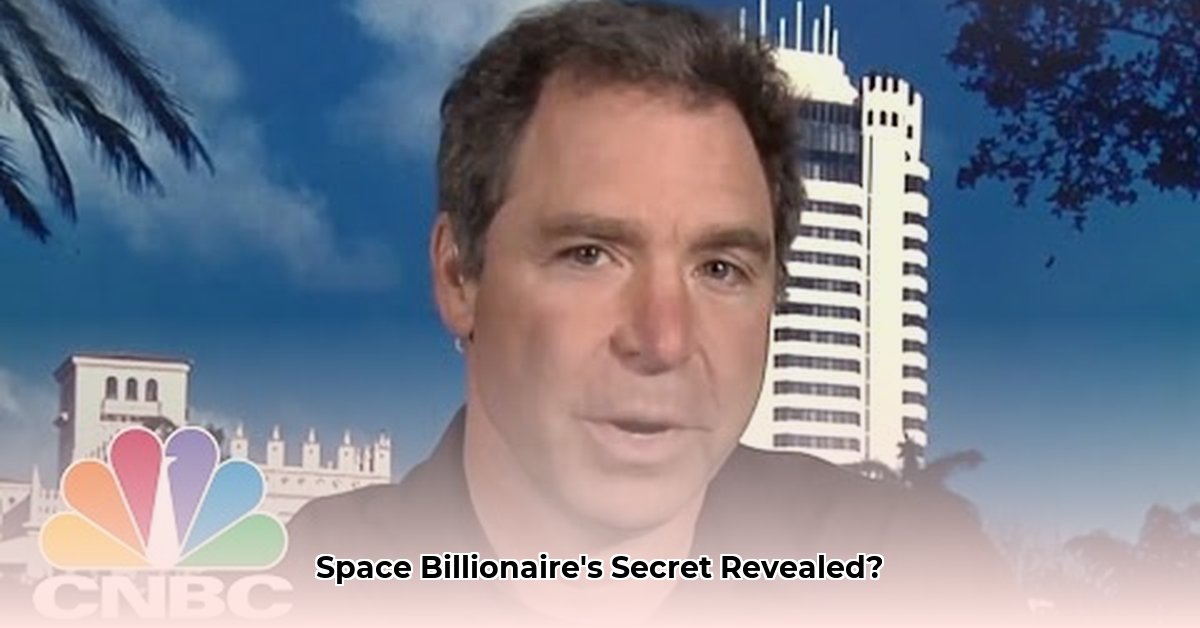
Greg Wyler's journey isn't simply a tale of accumulating wealth; it's a captivating narrative of ambition, innovation, and resilience in the dynamic world of space-based telecommunications. His story is one of groundbreaking successes, devastating failures, and a persistent drive to connect the unconnected, a journey that has profoundly shaped both his personal fortune and the industry itself. While pinpointing his exact net worth remains elusive, examining his entrepreneurial trajectory illuminates the complexities and high-stakes nature of this sector.
O3b Networks: A Triumph of Innovation
Wyler's initial foray into space-based internet connectivity, O3b Networks, marked a significant turning point. He envisioned a constellation of medium-Earth orbit (MEO) satellites (satellites orbiting at a medium distance from Earth) delivering high-speed internet to underserved regions—a bold vision that ultimately proved successful. This venture's success hinged on a combination of factors: innovative technology, a focused market strategy targeting areas lacking adequate ground infrastructure, and meticulous execution. The successful launch and operation of a constellation of twelve satellites demonstrated the viability of his concept, generating substantial revenue and significantly boosting his net worth. How much did this initial success contribute to his overall wealth? While precise figures remain private, it’s clear O3b cemented his position as a major player in the space industry.
OneWeb: A Bold Vision, a Costly Lesson
O3b's triumph emboldened Wyler to pursue an even more ambitious goal: OneWeb. This project aimed to deploy a massive constellation of low-Earth orbit (LEO) satellites (satellites orbiting close to Earth), creating a truly global internet network. The sheer scale of OneWeb, however, proved to be its undoing. While early launches showcased promising technology, securing the astronomical funding required to complete the project became an insurmountable challenge. The project's ultimately high costs, coupled with unforeseen financial hurdles, resulted in bankruptcy in 2020. This dramatic downturn serves as a stark reminder of the risks inherent in exceptionally large-scale ventures, even for those with proven success. Did this failure erase the gains from O3b? While the exact impact is unclear, it undoubtedly significantly affected his financial standing.
E-Space: A Strategic Pivot
Undeterred by OneWeb's collapse, Wyler demonstrated remarkable resilience by launching E-Space. This venture represents a strategic shift, focusing on a more niche market: providing secure, reliable satellite communication services to government and enterprise clients. This targeted approach prioritizes stability and sustainable revenue streams over the immense risk of a massive global network. The long-term financial success of E-Space remains uncertain, yet its more measured and pragmatic approach suggests a valuable lesson learned from OneWeb's experience. This strategic pivot reflects an adaptable mindset, often crucial for success in the volatile space technology sector. Will this new approach lead to a resurgence in his wealth? Only time will tell.
Analyzing Greg Wyler's Financial Trajectory
The following table summarizes the financial implications of each venture, highlighting key success factors and challenges:
| Venture | Key Success Factors | Major Challenges | Likely Impact on Net Worth |
|---|---|---|---|
| O3b Networks | Innovative technology, targeted market, successful execution | High initial investment | Very Positive |
| OneWeb | Bold vision, technological promise | Massive capital needs, insurmountable financial hurdles | Initially positive, ultimately negative |
| E-Space | Focused market niche, potential for government contracts | Uncertain long-term market demand, fierce competition | Currently undetermined |
Lessons for Investors and Entrepreneurs
Wyler's entrepreneurial journey provides invaluable lessons for investors and aspiring space entrepreneurs. His story underscores the critical need for careful planning, comprehensive risk assessment, and a deep understanding of the intricate landscape of the space industry. The high capital investment requirements, coupled with the inherent technological and geopolitical risks involved in space-based ventures, demand thorough due diligence and strategies for adapting to unforeseen challenges. His experience highlights the potential for immense rewards, but also the reality of significant setbacks in this rapidly evolving sector.
Mitigating Financial Risk in Space-Based Telecom
Based on Wyler's experience, navigating the financial complexities of the space-based telecommunications industry requires a multi-pronged approach:
Robust Financial Planning: Accurate cost projections, comprehensive insurance, and contingency planning are essential to mitigate the high investment costs and unpredictable technological challenges.
Geopolitical Risk Mitigation: Diversifying satellite launch sites, supply chains, and funding sources minimizes vulnerability to international relations and political instability.
Sustainable Practices: Investing in debris mitigation technologies and adhering to responsible space resource management principles fosters long-term sustainability and reduces potential environmental and financial liabilities.
Strategic Partnerships: Collaboration with established industry players shares risks, leverages expertise, and expands funding opportunities.
Regulatory Compliance: Detailed understanding and proactive engagement with the regulatory landscape prevent costly delays and potential penalties.
The road to success in space-based telecommunications is paved with calculated risks and a relentless pursuit of innovation. Greg Wyler´s journey, despite the setbacks, serves as a compelling case study in how perseverance, adaptation, and a well-defined strategy can shape the future of this dynamic industry.